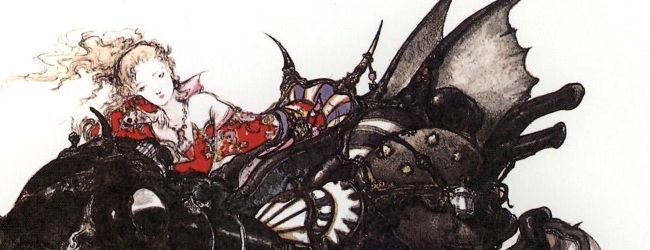Number 12

Final Fantasy VI
This game was the first Final Fantasy I bought after beating Final Fantasy IV; in fact it may have been the next game I bought altogether. I did some cursory research; I was not sure what to expect out of it, but the size of the cast made me wary. I was sure that most of them wouldn't be properly developed, and that was something I cared about a lot at the time.
Then the game came in the mail, and I played it, and it destroyed all of the assumptions i had made about the genre.
Thirteen characters, ten of whom had literally hours devoted to the character development and the other three of whom (Mog, Umaro, and Gogo) were either funny enough to support themselves or can be forgiven for being easter eggs of a sort. It was unlike anything I had ever seen in a game before, and to this day I still manage to be impressed by how much content they managed to cram into that little cart. For many years, this had the best cast of any Final Fantasy.
The game is huge, expansive, beautiful, painstakingly crafted, a labor of love so obvious in its devotion that it is embarrassing to look at, as if you are staring into the secret heart of someone you do not know. I could go on for hours (and have before) about the ways in which this game is wonderful, but one in particular bears mention above all the others: the music.
This is far and away the best soundtrack in the series, if not the genre, if not the medium. If you don't like this game's soundtrack then it's pretty easy to say that I don't seriously consider a thing you have to say about music in games.
It's something I appreciat emore as I get older and understand more about music; the more I look at it, the more the soundtrack gives the impression of being an aural tapestry, a single piece, the disparate elements of which contain traces of each other. No other game has so cleanly and easily woven music into its narrative, into the progression of characters and the world and the story itself, opening and closing on musical cues that reach out and grab you with their sameness, an exultation of theme and continuity. The liet motif applied to every character of import results in music that evokes imagery whenever it is heard, so that when character themes are eluded to in later songs one is made to remember the scenes to which those themes have been connected. It is still Uematsu's masterwork, an achievement of such scope as to beggar the abilities of lesser artists, and I hate to think how much less powerful this game would be without it.
Of all the 2-D Final Fantasies, this is the best one. It has to be played, no matter who you are, whether you like the genre or not; there is something here for everyone, even if you like nothing but the music.

















